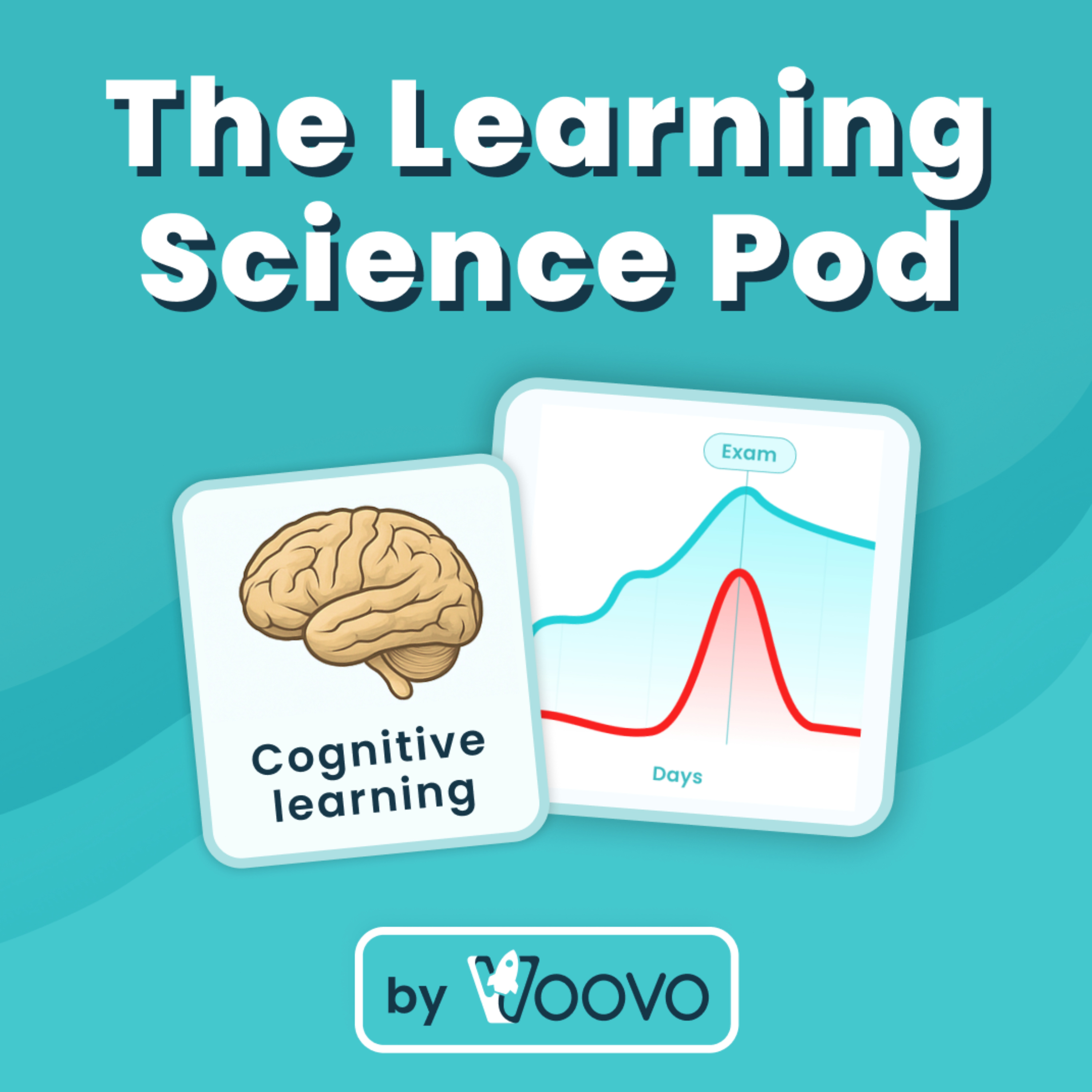The Learning Science Podcast

The Learning Science Podcast
Podcast Description
The Learning Science Podcast explores the gap between learning science and classroom practice. Hosted by Benedek Herman, medical student and founder of the EdTech platform Voovo, the podcast features conversations with learning scientists and educators about what the research really says. What works, why it works, and why it often isn’t used. From evidence-based study techniques to real-world implementation tips, each episode helps educators, students, and curious minds apply the science of learning where it matters most.
Podcast Insights
Content Themes
The podcast delves into key themes in learning science, including evidence-based study techniques, barriers to effective educational practices, and the role of technology in learning. Episodes explore specific strategies such as interleaving and retrieval practice, highlighting real-world applications and challenges faced by educators in implementing these methods, as showcased in episodes featuring discussions on active learning and self-regulated learning.

The Learning Science Podcast explores the gap between learning science and classroom practice. Hosted by Benedek Herman, medical student and founder of the EdTech platform Voovo, the podcast features conversations with learning scientists and educators about what the research really says. What works, why it works, and why it often isn’t used. From evidence-based study techniques to real-world implementation tips, each episode helps educators, students, and curious minds apply the science of learning where it matters most.
Summary
In this engaging conversation, Benedek Hermán and Lucian explore the intricacies of learning science, educational design, and the importance of experiential learning. Lucian shares his journey into education, emphasizing the significance of creating moments of realization for students. They discuss the role of assessment in education, the utility of Bloom's taxonomy, and the balance between factual knowledge and critical thinking. The conversation also delves into innovative approaches to multiple choice questions and the need for continuous assessment to foster ongoing learning.
Chapters
00:00 Introduction to Learning Science and Education Reform
03:39 Experiential Learning and Moments of Realization
06:38 The Role of Mindset in Learning
09:39 The Importance of Context in Learning
12:36 Connecting Learning to Real-World Problems
15:37 Designing Learning Experiences for Institutions
18:40 Assessment Redesign and Learning Outcomes
21:41 The Impact of Grades on Learning
24:35 Strategies for Effective Assessment
27:35 Hinge Questions in Teaching
30:37 Bloom's Taxonomy and Its Application
47:21 Understanding Bloom's Taxonomy
51:02 The GPS of Learning
57:30 Navigating Learning Levels
01:03:38 The Role of Facts in Learning
01:14:41 The Interplay of Knowledge and Critical Thinking
01:20:45 Designing Effective Multiple Choice Questions
”Creating moments of realization is key in learning.”
”Continuous assessment promotes ongoing learning.”
”Educational design should be flexible and adaptive.”
Keywords
learning science, experiential learning, Bloom's taxonomy, assessment redesign, educational technology, hinge questions, critical thinking, continuous assessment, pedagogical principles, educational design

Disclaimer
This podcast’s information is provided for general reference and was obtained from publicly accessible sources. The Podcast Collaborative neither produces nor verifies the content, accuracy, or suitability of this podcast. Views and opinions belong solely to the podcast creators and guests.
For a complete disclaimer, please see our Full Disclaimer on the archive page. The Podcast Collaborative bears no responsibility for the podcast’s themes, language, or overall content. Listener discretion is advised. Read our Terms of Use and Privacy Policy for more details.